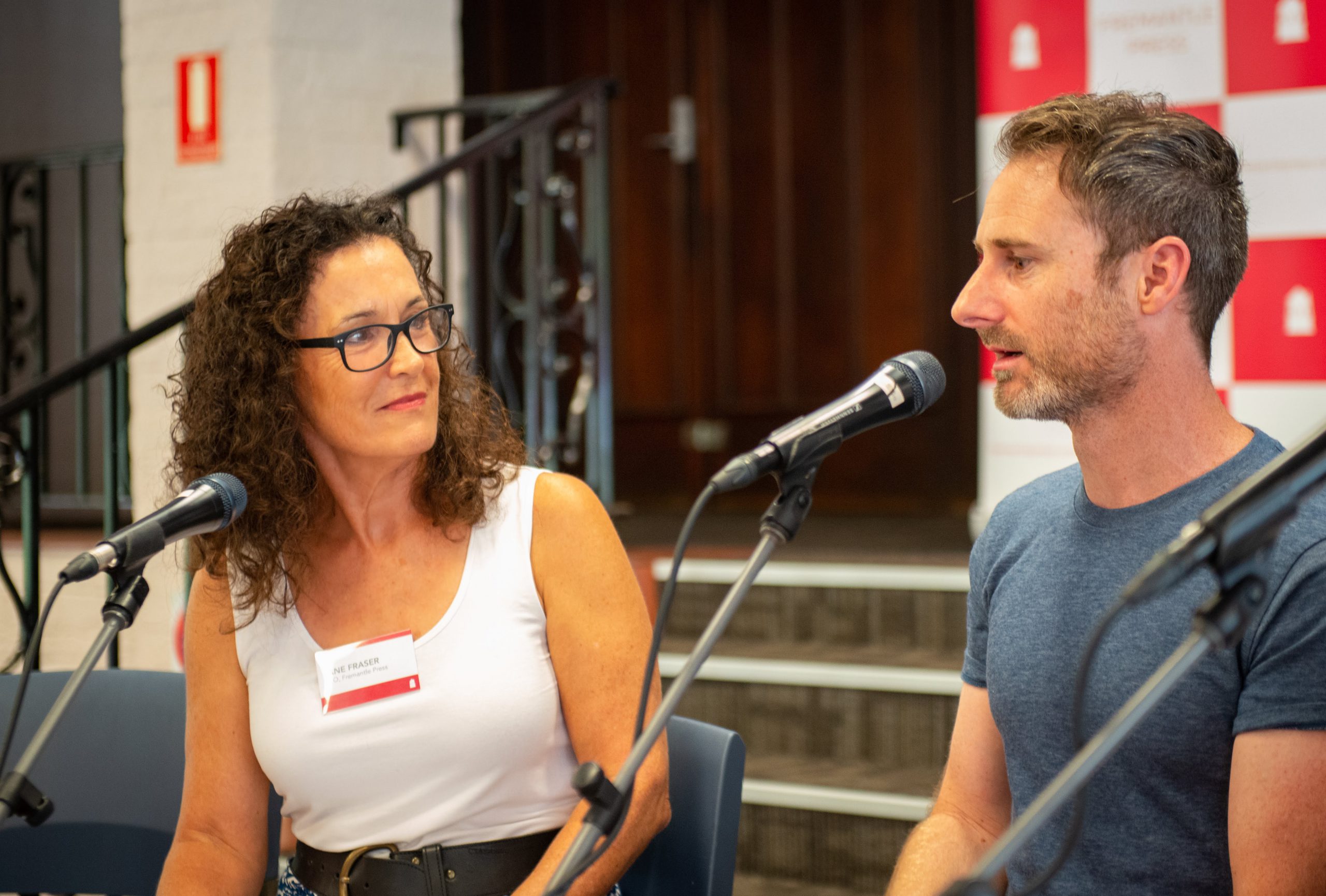UWA graduate Kiera Ellis on what she learned about copyright and contracts from this year’s Business of Being a Writer

Perth Festival’s Literature and Ideas Weekend injected the city with a refreshing dose of creative energy for the world of storytelling to be celebrated and recognised.
The thought of fostering one’s creative spirit often brings with it romantic imagery of sitting at home, or perhaps in a cafe, typing out one’s wildest ideas. However, becoming a published author also involves important legal considerations. I was fortunate enough to be able to sit in on the Business of Being a Writer seminar hosted by Fremantle Press, which offered a moment for aspiring writers to engage with established figures within the writing, editing, publishing and distribution fields. The first panel featured successful authors Alan Carter and Craig Silvey, in conversation with Jane Fraser, the CEO of Fremantle Press, on all things contracts, copyright and subsidiary rights.
What do you do when you get your first publishing contract?
Crime writer Alan Carter said the moment he received his first publishing contract for his debut novel, Prime Cut, he was too busy screaming and running around the house to dedicate it more than a quick ‘scan’. Now, he emphasises the importance of checking with the Australian Society of Authors (ASA) to see if what you have been offered is up to the correct standard. Craig Silvey recounted that he sent the manuscript for his first novel, Rhubarb, to Fremantle Press having no idea what he was getting himself into in terms of the contractual aspects of being a published author. Upon the publication of his second novel, however, he was under the wing of an agency, and strongly recommended that writers find themselves an agent they can trust in order to secure their rights and maximise profits. This was tempered by a warning from Alan Carter, though, who said if you hold out on too many offers, this is more time that ‘people are forgetting you’, and ‘not seeing your name on shelves’, and encouraged aspiring writers to recognise that first offers are usually a stepping stone towards better things.
What is copyright and what are subsidiary rights?
Jane Fraser explained that the author is the owner of the copyright, and that this legal framework lasts for the author’s life plus a further 70 years. She said, ‘In a publishing contract, the author licenses the publisher to work exclusively with their copyright material, but the author never relinquishes ownership of that copyright.’ She added, ‘The author must also warrant in the contract that the work is original and contains nothing defamatory, which could cause problems down the track.’
Contracts with publishers often include a range of subsidiary rights, which are licensed by the author to the publisher to sell. These include rights to translation and international publishing, stage and film, and audio and radio broadcast, and can bring in a valuable source of income for author and publisher. Silvey stressed the importance to him of maintaining world rights, and Carter said audio rights were of increasing importance at a time when ‘people are more often digesting stories through spoken word’. Both Silvey and Carter have experience in the film industry. Silvey’s Jasper Jones was adapted into a feature film, while Carter has worked as a documentary maker. They were optimistic about the future of books becoming films due to the proliferation of streaming services creating increased demand for original content on which to base shows and films. This, they said, opens up new possibilities for authors.
Questions from the public
During the interactive portion of the seminar, an audience member raised the issue of legalities around defamation, especially considering that many books, such as Carter’s crime novels, were based on real people or events. Silvey shared that his references to cricketer Doug Walters in Jasper Jones being an ‘alcoholic’ had to be revised to instead say ‘lunatic’ to avoid potential risk of defamation charges.
All in all, I found the panel was a welcomingly candid and extremely educational opportunity to hear from such successful and experienced members of the publishing world. It was great to get behind-the-scenes insights from CEO Jane Fraser, while the personal experiences of authors Alan Carter and Craig Silvey gave the audience a broad scope of knowledge to demystify the legalities of contracts and copyright.
About the Author
Kiera Ellis is in her final year of her bachelor’s degree at the University of Western Australia. She is majoring in English and Literary Studies with a minor in Law and Society. Kiera has volunteered as the Communications and Marketing intern at the Mental Health Law Centre and partaken in creative writing events such as Write a Book in a Day. In her free time, she enjoys reading, watching films, and drawing pictures.


